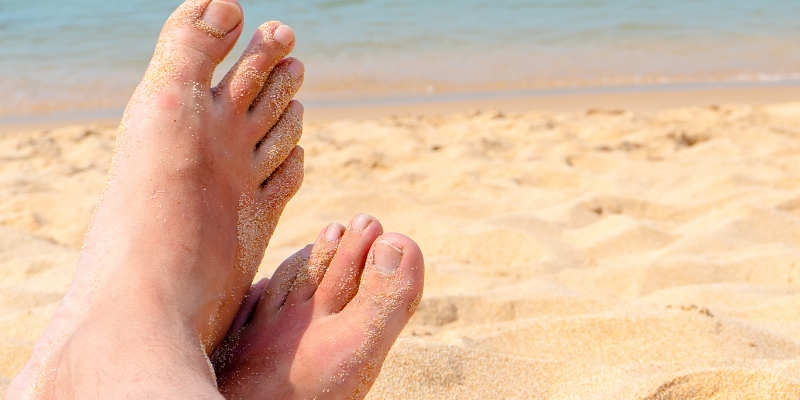Summer Foot Health Tips for Men
June is Men’s Health Month, and at Goldsmith Podiatry, we want to encourage our male Manhattan patients (and those who love them) to be proactive in the care of their feet this summer. Below are some easy ways to keep male feet healthy and prevent common podiatric conditions.
Use You Flip-Flops—At the beach, pool or gym, make sure you keep your feet covered. Fungal infections and warts are spread through direct contact and commonly lurk on surfaces where many bare feet tend to tread. It is not recommended to wear flip-flops as your regular summer shoe, however. They lack arch support and any kind of protective structure which increases the risk for injuries.
Don’t Forget Sunscreen—Foot doctors are seeing more melanomas on feet as men are wearing sandals and open style shoes more frequently. Remember to apply a broad-spectrum sunscreen with an SPF of 15 or higher whenever the skin on your feet will be exposed—not just on beach and lake days.
Change your Socks—Soaring temps increase foot perspiration and sweat interacts with bacteria to produce foot odor. Start each day with clean socks and if you tend to sweat excessively keep a spare pair handy and change when you notice feet feel damp and try a roll-on antiperspirant on the soles of your feet.
Trim Toenails Regularly—Ingrown toenails are incredibly painful and can sideline you pretty quickly. Cut nails straight across and not too short to avoid having the skin grow over the nail encouraging it to grow inward.
Don’t Put Off Podiatrist Visits—Studies show that men tend to delay seeking medical treatment in a timely manner and often put off regular checkups. If you are suffering with foot pain or have a chronic podiatric problem be sure to contact our Upper West Side office at 212-877-1002. Our podiatrists, Dr. Howard Goldsmith, Dr. Rosanna Troia and Dr. Kristina Ruff will examine your feet and get a complete medical history. The foot doctor will provide a prompt diagnosis and a treatment plan that’s custom-designed for your condition. Remember, foot disorders are best treated in their early stages when less invasive methods are more likely to be successful.

